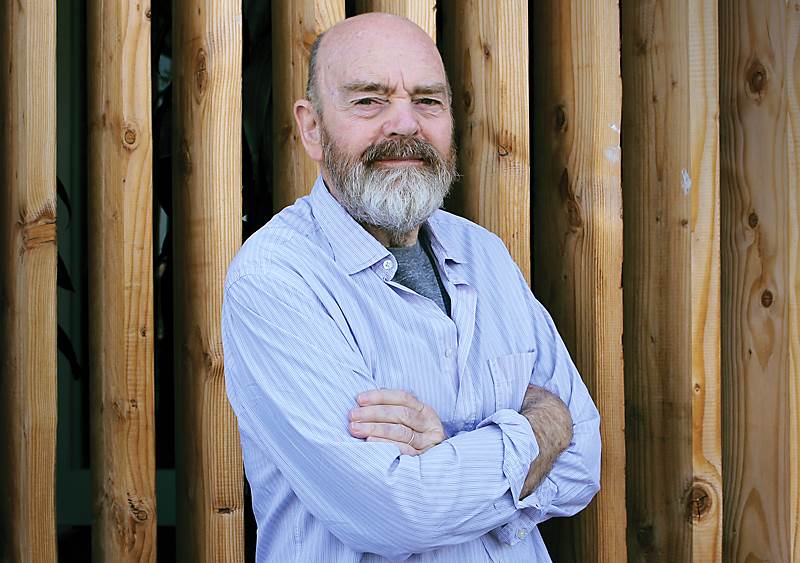Adriano Goldschmied: We have a unique opportunity for radical change

Adriano Goldschmied gives us his views on how the coronavirus pandemic is accelerating transition and offers his suggestions for how the industry needs to adapt to make it better for consumers, the workers and the planet.
I’ve worked in design and the industry for such a long time. I’ve experienced so many crises and traumatic events, but I never expected to see anything like what is happening now. We thought we were “invincible” and now we are here, and we realise how fragile we are and how wrong we were with what we used to call “normal”.
Today brings a unique chance to build something different that has nothing to do with what we did in the past. I think we should think about a new “normality” that is completely different and focuses on giving the right values to our lives and business. It is time we think about happiness for humanity and not only about the profits of leading companies. We need to share with everybody the benefits that technology and innovation offer and redefine the goals of companies in our society.
I think this could happen if we create a global movement involving industries, people and communities that are fighting properly for justice, freedom, equality and better working conditions but are also able to answer the urgent problems of sustainability and climate change. We all have to feel this responsibility and act. Our industry all over the world is big and powerful; if we are all motivated we can make big changes and influence other businesses and together make huge strides towards a better way of living and working.
Covid-19 is like a global tsunami that has destroyed the structure of our businesses: the way we design, the way we develop the product, how we produce, how we sell and market the product. But one of the most important changes, which is ever evolving, is the mentality of consumers and their approach to shopping. It has been a tremendous acceleration to a process that was already in place but was too slow and not complete. At this point, we have to rethink all the processes and the chain, which includes design, product development, production and distribution. It’s important to think outside the box and keep in mind how consumers have changed and what our society is expecting from our industry. It would be a mistake to just rebuild our structure how it was. The situation today is completely different, and we have to think about the future and not the past.
Inspiration and creativity will be increasingly important as those are the tools we need to be ready for the next challenges. As always, I start by analysing the situation for consumers to understand their values. For sure, we have less money and we have other priorities. We are not as interested in overconsumption; we need less, we are looking for goods that are durable and better quality, we are interested in brands that have sustainability and circularity as their DNA and even more that they are totally transparent about their work ethics. That said, we have to analyse the consequences for our industry, which is difficult as we will have to restructure the chains. Here are some points we must consider:
- We have to produce less. I estimate probably 30% to 40% less in the next years. This means a gigantic and difficult industrial restructure. We must guide the workers and the industry in a different direction, developing the green economy, food industry, health and education and technical innovation. Being a denim guy, it’s hard to say, but we can be happy with fewer jeans.
- We must reconsider the fibres that we will use in the future. Cotton, we know, takes a lot of water, land, energy and chemicals. We have to make more use of natural fibres that are much more efficient such as hemp, which has amazing properties, or manmade fibres like Tencel that come from trees (although this needs to be a controlled source - no deforestation).
- Biotechnology is changing the way we make indigo dye stuff. Today it is a chemical process that is toxic. HUUE [formerly Tinctorium] is making a dream come true. They make indigo from sugar cane with a fermentation process.
- Redesign textile processes to use much less water and energy and create fewer CO2 emissions.
- Garment finishing is more advanced than other segments. There are technologies and machines that are much more efficient in terms of sustainability and more friendly for workers.
- Rethink the organisation of production, giving preference to local production and reducing transportation.
The big revolution is in digitalisation, where our industry was very behind. The cost of travel and restrictions are dramatically changing the way we work. Inspirations and designs are digital, we are selecting fabrics and accessories in digital showrooms, 3D and artificial intelligence is giving us the possibility to develop product with very few samples. Through technology, there are online showrooms where we sell and promote product.
So finally, coming quickly to a new era, if we are smart and good, we will have a better industry and happier consumers as well as giving priority to better values. However, people are always behind technology, innovation and creativity, and our future is their hands. Leaders and people are making the difference. If we lose this unique opportunity it will be catastrophic for all of us and our planet.
Good people are making a good planet.










